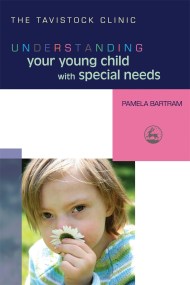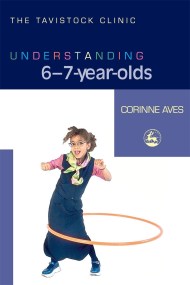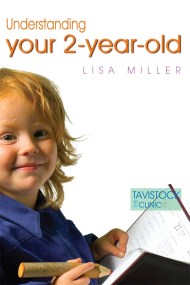How much independence should parents allow teenagers who claim rights and privileges, show excessive confidence and test the boundaries of discipline? How can parents handle the physical and emotional changes in their adolescent child?
This book offers helpful advice to parents whose children have reached the turbulent teenage years. From conflict management to issues of bullying, stealing and smoking, it guides parents as their children alternate between maturity and immaturity and develop their own identity. It explains the impact of school life, group pressures and close friendships on 12-14-year-olds’ development and helps parents to offer their child support, while accepting his or her increased need for privacy. Alongside these challenges, the author reveals the rewards of sharing in these young people’s enthusiasm and ambitions, as they grow more confident and responsible.
This book provides practical and sensitive advice for parents to help them relate to and communicate with their child at a difficult time of transition, while being prepared to question what they thought they already knew about their son or daughter – and about parenting.
This book offers helpful advice to parents whose children have reached the turbulent teenage years. From conflict management to issues of bullying, stealing and smoking, it guides parents as their children alternate between maturity and immaturity and develop their own identity. It explains the impact of school life, group pressures and close friendships on 12-14-year-olds’ development and helps parents to offer their child support, while accepting his or her increased need for privacy. Alongside these challenges, the author reveals the rewards of sharing in these young people’s enthusiasm and ambitions, as they grow more confident and responsible.
This book provides practical and sensitive advice for parents to help them relate to and communicate with their child at a difficult time of transition, while being prepared to question what they thought they already knew about their son or daughter – and about parenting.
Newsletter Signup
By clicking ‘Sign Up,’ I acknowledge that I have read and agree to Hachette Book Group’s Privacy Policy and Terms of Use
Reviews
The book highlights the often powerful emotions 12- to 14-year-olds experience as they try to find their own space, and distance themselves from their parents, guardians and carers while establishing friends and peer support... It gives practical advice on how to deal with situations and how to manage conflict around issues such as smoking, bullying, eating disorders and sexuality, which will not only help a parent but any professional who works with children and young people.
The quotations from older people about their experiences as a 12- to 14-year-old are informative and interesting, evoking my own personal memories of being that age.
The highlight of this book is Waddell's clear, concise and informative writing style, complimented by her excellent research. I would highly recommend this book for the casual reader and those seeking in-depth information about the "terrible 12s".
This publication, part of a series of guides that concentrate on key transitions in children's lives, offers practical and sensitive guidance for parents supporting their child through the new challenges of teenage life. It includes advice on issues such as stealing, bullying, smoking and eating disorders.
This short paperback is one of a revised series written by staff from The Tavistock Clinic. The author, a child psychotherapist, explores the complex and ambivalent feelings aroused during this turbulent transitional period when children struggle to develop social and emotional independence from their families. There is growing concern among professionals working with this age group that the pressures on young teenagers have increased with the advent of the Internet, mobile phones, powerful advertising as well as the consequences of family break-up and new educational demands. A book that aims to explain the conflicting emotions and turmoil, the peer group pressures and the moodiness and uncertainty with which parents and teachers are confronted, is very welcome.










